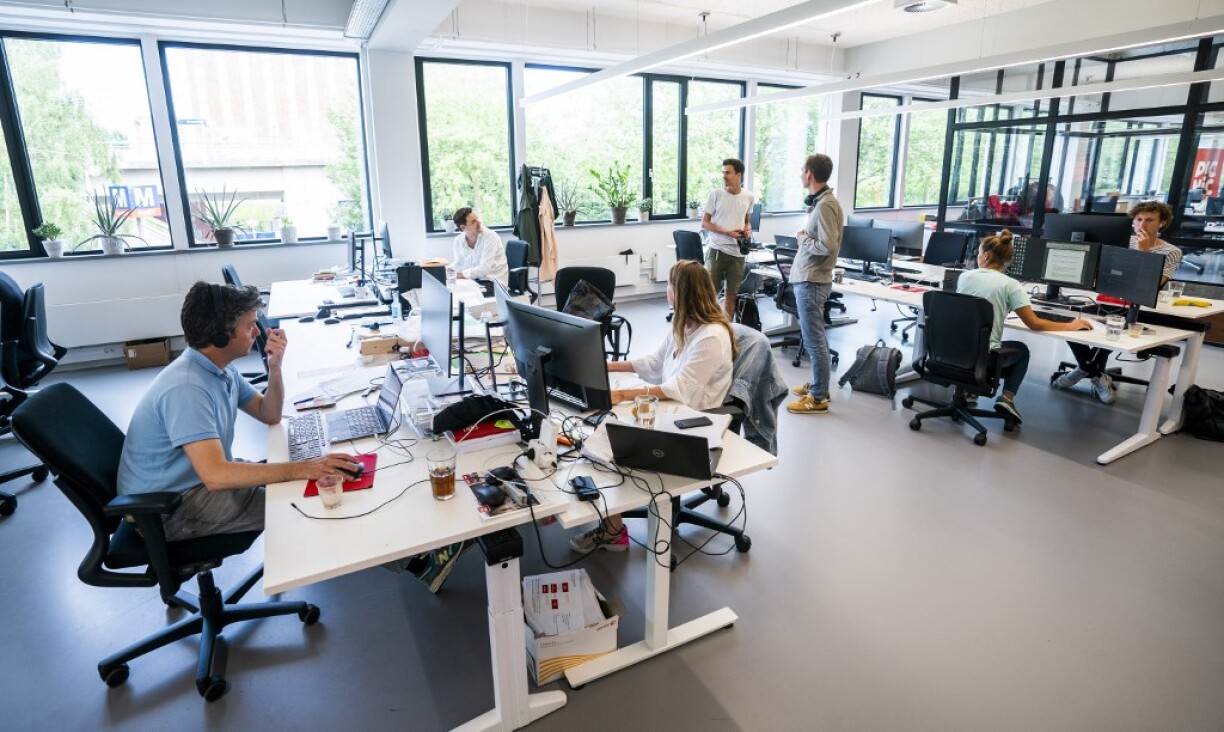
Slashing working hours did not form part of the 2018-2023 coalition agreement, but it could well become a feature of the next government, depending on the results of October’s election. The idea of reducing the 40-hour work week, first tabled by Labour Minister Georges Engel shortly after his appointment in January 2022, has now become an essential talking point for candidates standing in the upcoming parliamentary elections.
A LISER study unveiled in April 2023 revealed that more than six out of ten people are in favour of a reduction in working hours in Luxembourg. The 40-hour week has been in force in since 1974.
Expectations about working time are palpable, but not all the parties in the running are approaching the issue from the same angle. Four parties – the LSAP, The Left, the Luxembourg Communist Party, and Volt – are clearly in favour of a reduction in working time. Others, including the DP, the Christian Social People’s Party (CSV), the Pirate Party, and the Alternative Democratic Reform Party (ADR), are against a generalisation of working time, but see increased flexibility as a solution.
This has been outright rejected by the Independent Luxembourg Trade Union Confederation (OGBL), as their president Nora Back recently underlined in conversation with RTL.
Meanwhile, The Greens and Fokus have proposed original solutions while Liberty and The Conservatives do not explicitly mention the issue in their election programmes.
The LSAP and its front-runner Paulette Lenert believe that a 40-hour work week is “too much” in the post-pandemic era focused on improved work-life balance. The LSAP sees a reduction in working hours as an “essential element in the attractiveness of the Luxembourg economy”, as well as “an instrument for the fair sharing of productivity gains”.
The LSAP therefore advocates a reduction to “38 hours without loss of pay”. It plans to carry out pilot projects in various sectors so that it can then put in place “a system of support and assistance to help companies make a successful transition to shorter working hours”. The party also promises to “increase paid annual leave to six weeks in the private sector”. This would mean an increase from 26 to 30 days of leave annually.
On the same wavelength, The Left is proposing “the introduction of a sixth week’s holiday for all employees in 2024". However, the left-wing party goes the furthest in their proposal for reducing the working week, suggesting “a 32-hour week with no loss of pay by 2030". Furthermore, they want to limit the maximum hours of work per week to 40.
The KPL is calling for “the introduction of a 35-hour week with no loss of pay”. They say that “given the sharp increases in productivity, the workforce is underpaid, wages are too low, and the legal working hours introduced 48 years ago are too long”.
Pan-European party Volt devotes a whole page of its election manifesto to reducing working hours. While not explicitly proposing a fixed number of hours, they too call for “pilot projects to reduce weekly working hours without loss of pay”.
Party officials think that two “significant positive effects” argue in favour of less busy weeks. Firstly, a reduction in working time “can increase productivity” and secondly, it “might be an effective workplace intervention to improve employee well-being, particularly with regard to stress and sleep”.
According to Volt, arguments for working shorter hours without loss of pay are numerous: more time to organise life at home, spreading working hours more evenly, and combating unemployment, more time for bringing up children, all to name but a few.

“We in no way want to abolish the traditional 40-hour working week, but rather want to offer more flexibility to employees who are not interested in a job with traditional office hours”, argues the DP. The general idea is to “create flexible working models” to give “citizens more time for their families and leisure activities”.
For the DP, the study carried out on the general reduction in working time “clearly indicated that under current conditions, the risks involved in shortening working time outweighed the opportunities”. In times of economic difficulty, the DP notes that “it would be irresponsible to put jobs at risk”. Nevertheless, the DP is open to “debates on modern working time models” and says it is ready to “help companies that wish to test reductions in working time”.
The Pirate Party is proposing to “promote flexible working models”, meaning that employees do not necessarily have to work 40 hours every week. What matters, according to this model, is that the employee has worked an average of 40 hours over the year. But, the weekly working time should not exceed 48 hours, according to the Pirates. The reference period would have to be set by companies in consultation with social partners.
To ensure that the Luxembourg economy remains competitive, the CVS is prepared to “reorganise working time”, but intends to do so “through social dialogue”.
The ADR is opposed to a general shortening of working time, but supports “all measures aimed at making working time more flexible”. However, the party does not explain how this might be achieved in practice.
The Greens want to give social partners the freedom to introduce new working time models. Their proposal is to “evaluate and revise the 2016 Working Time Act in consultation with them. A balanced relaxation in the interests of both employers and workers can only be determined through dialogue with the social partners”.
Like Volt, the Greens are looking at experiences abroad which have shown that “a reduction in working time can have positive effects for workers and companies”. They therefore want to launch a pilot programme in which companies can participate on an annual basis, allowing them to test new working time models with scientific support and advice.
Fokus expressed scepticism concerning a widespread reduction in working hours, arguing it would create issues, rather than solving them. However, the party supports reducing working hours “where possible, if useful, beneficial and socially productive”.
The party said a reduction in working hours with salary compensation should ideally be offered to people with the greatest needs depending on personal circumstances. This could include employees requiring time for parental leave, caring for others, or volunteering commitments. Fokus believes the State should create a framework with conditions making it feasible to reduce working hours without putting the burden on businesses.